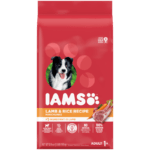
Understanding Kidney Disease in Dogs: Causes, Symptoms, and Treatment
When your dog starts drinking more water than usual or isn’t quite as peppy on your morning walks, it might not just be the weather. These subtle changes can be early whispers of a bigger issue—kidney disease.
Let’s talk about what really goes on with kidney disease in dogs, how to catch it early, and what you can do to help your pup feel better—naturally, medically, and emotionally. We’ll even share Bella’s story, a real-life Golden Retriever who proves that hope is never off the leash.
🦴 What Causes Kidney Disease in Dogs?
Just like people, dogs’ kidneys can wear down over time. That’s why chronic kidney disease (CKD) is more common in older dogs. But age isn’t the only villain.
Dr. Angela Morrison, DVM:
“Kidney disease can be triggered by infections, toxins, genetic conditions, or even something as simple as long-term use of certain pain medications. It’s not always about age—sometimes it’s exposure or bad luck in the gene pool.”
- Urinary blockages
- High blood pressure
- Autoimmune diseases
- Toxins (like grapes, raisins, and antifreeze)
🐾 Spotting the Silent Signs: Early Symptoms
Kidney disease doesn’t shout—it whispers. That’s why catching it early can be tricky.
- Excessive thirst or urination
- Weight loss and lack of appetite
- Lethargy or listlessness
- Nausea, vomiting, or diarrhea
- Bad breath that smells like ammonia
Dr. Kim Hough:
“If you notice changes—even subtle ones—it’s worth a vet visit. Early treatment can add years to your dog’s life.”
🥦 Nutrition as Medicine: What to Feed a Dog with Kidney Disease
A proper diet can make all the difference. The right food reduces kidney workload and supports the body from the inside out.
- Low but high-quality protein: Think lean meats or egg whites.
- Reduced phosphorus levels: Helps slow kidney decline.
- Omega-3 fatty acids: Fish oil can fight inflammation.
- Hydration: Wet food or broth cubes help increase fluid intake.
Dr. Sandra Yu, DACVN:
“Dietary therapy is one of the most effective tools we have for managing kidney disease. Food is powerful medicine.”
🐶 Bella’s Journey: A Real-Life Story of Kidney Disease in Dogs
Bella, a 9-year-old Golden Retriever, was always the picture of health—until she wasn’t. Her humans noticed she was drinking more water and seemed a bit “off.” They chalked it up to heat exhaustion… until Bella stopped eating her favorite treats.
Tests revealed early-stage kidney disease. But thanks to early intervention, dietary changes, and a whole lot of love, Bella is thriving.
Melissa, Bella’s owner:
“We felt helpless at first, but once we understood the condition and had a plan, it changed everything. Bella’s back to chasing squirrels and loving life.”
🌿 Natural Remedies and Complementary Therapies
Many pet parents turn to natural and integrative care to help their dogs feel better. Always talk to your vet before starting any of these:
- Dandelion root: A natural diuretic to flush out toxins
- Milk thistle: Supports kidney and liver health
- Acupuncture: Promotes healing and reduces pain
- Hydrotherapy: Strengthens muscles without stressing the kidneys
Dr. Marisa Wagner:
“Natural therapies aren’t a cure-all, but they’re powerful when used alongside veterinary care.”
🛑 What If It’s Kidney Failure?
In later stages, kidney disease may progress to failure. Symptoms worsen, but comfort care can still make a difference:
- Subcutaneous fluids
- Renal support diets
- Medications for nausea and phosphorus control
- Compassionate palliative care
Dr. Elena Porter, DVM:
“Even in kidney failure, we can make pets comfortable and give them quality time.”
🐕 Final Thoughts
Kidney disease in dogs is serious, but with the right tools—awareness, early action, a smart diet, and lots of love—you can make a huge difference. Stay alert, talk to your vet, and give your pup the care they deserve.
Every effort counts. Every moment matters.











